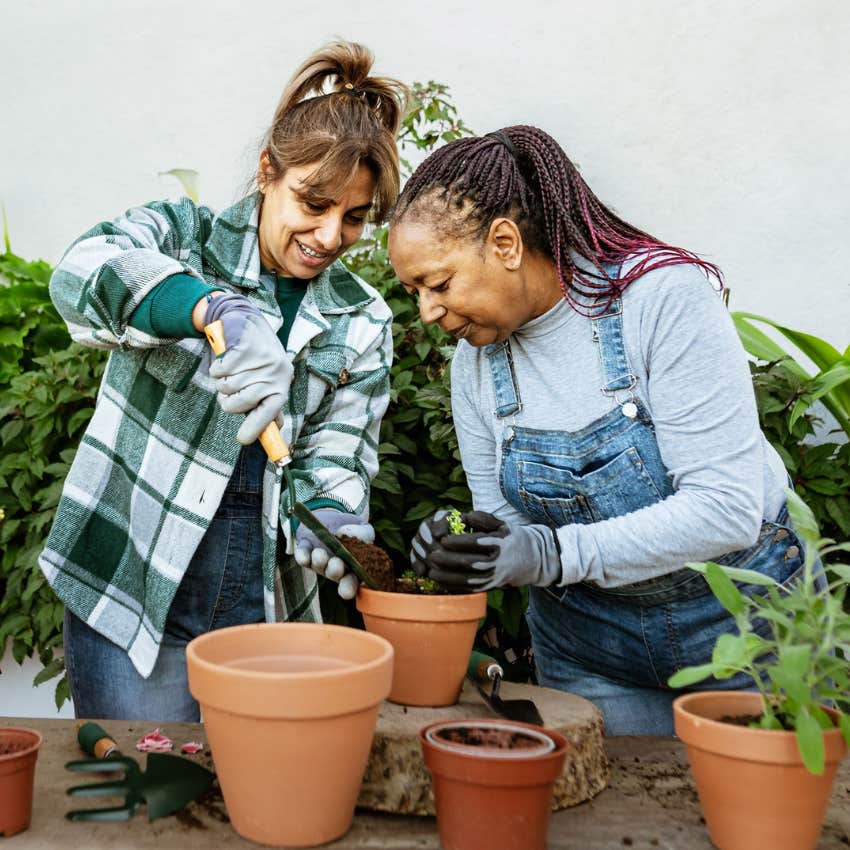Neuroscientist Shares 3 Easy Daily Habits That Can Protect Your Brain
Don't forget the habits and hobbies that made you light up as a child. Chances are they'll be even more gratifying as an adult.
 Pheelings media / Shutterstock
Pheelings media / Shutterstock A sharp mind and quick wit aren't just traits people are born with. Just like maintaining your body's health through stretching and exercise, it's imperative to challenge your mind to keep it running in tip-top shape.
According to neuroscientist Nas Fatih, also known as @nasneuro on socials, there are a few basic habits that can make a world of a difference when it comes to brain health and cognitive skills.
Here are 3 easy daily habits that can protect your brain, according to a neuroscientist:
1. Adopt hobbies that require you to use your hands
“Our brain has a complex architecture designed to support intricate hand movements,” Fatih wrote, “but sadly, we appear to be less ‘hands-on’ than before … The brain is like a muscle, so it’s important to continue training these fine motor skills.”
Activities that require the use of your hands act as an important connection between your body and your brain — a kind of brain stimulation that helps to exercise the muscle, and in turn, helps your long-term memory, cognitive processing, concentration, and mental skills.
 AlessandroBiascioli / Shutterstock.com
AlessandroBiascioli / Shutterstock.com
While not every activity — like texting, for example — that uses your hands is going to have the same powerful effect, Fatih said the combination of a “mental activity and complex” hand movement is the perfect concoction to protect your brain from memory problems, fatigue, and focus problems.
Amidst a hobby resurgence online, Fatih’s urgency about adopting these hand movements is incredibly relevant. “We should re-prioritize these complex hands-on activities such as gardening, painting, handwriting, or playing an instrument.”
So, pick up that clarinet from middle school or consider getting crafty with a new skill like embroidery — it’s both fun and an investment in protecting your brain.
2. Take photos with the people you love
If you’re an Instagram fiend or can’t help but snap candid pictures of all your friends on a night out, you’re already one step closer to maintaining a healthy brain habit.
“Photos capture memories of past experiences — stored in our brains, revisiting them strengthens their representation by our neurons,” Fatih explained. “Acting as a ‘glue,’ photos can bind families and trigger conversations.”
 Jacob Lund / Shutterstock
Jacob Lund / Shutterstock
Photography can be therapeutic and a powerful force for connection in our relationships and even healing for our physiological health and brain wellness.
Fatih added, “Neuroimaging research shows that this is therapeutic, as looking at photos of our loved ones slow down the ‘stress centers’ of our brain.”
3. Listen to your favorite music often
If you’ve been caught belting Noah Kahan at a red light or dancing to a techno beat on a night out, chances are you’ve experienced the power good music can bring into our lives. While it’s vastly underestimated and understated in public discourse, scientific research suggests numerous benefits, from social connections to brain health.
Especially if you’re listening to “throwback” playlists or music that you used to love at a different time in your life, you’re encouraging a “neural nostalgic” phenomenon that gives your brain space to heal from past traumas and protect itself in the present moment.
From memory growth to better concentration to mental health benefits, listening to music has incredible powers.
“Your favorite song triggers activity in brain regions linked to your identity, your feelings, and those of others,” Fatih wrote. “This explains why music can be so emotional. Paying attention to key parts of a song can rewire brain regions crucial to our decision-making.”
Music truly has the potential to be an incredible experience, teaching us new lessons about empathy while protecting our brains and reinforcing our identity.
So, if you’re trying to cultivate a healthier space for growth in your life, consider some of these basic habits. They’re things that we typically did as children or unconsciously enjoyed as adults but never intentionally included in our day-to-day lives. Don’t underestimate their power! Your future self will thank you.
Zayda Slabbekoorn is a News & Entertainment Writer at YourTango who focuses on health & wellness, social policy, and human interest stories.

